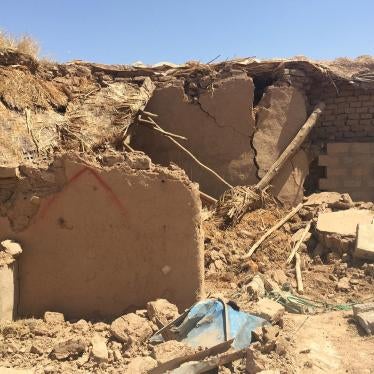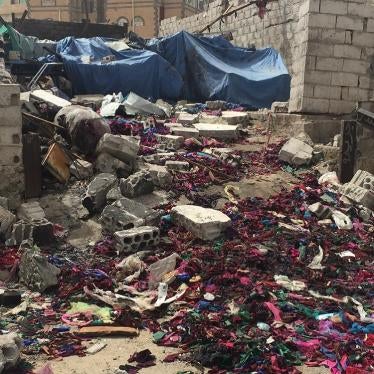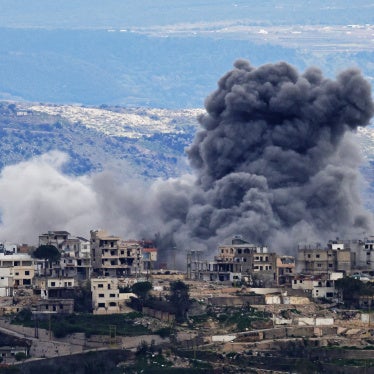(Tripoli) – The mass grave reportedly found in Tripoli with the remains of an estimated 1,200 prisoners from the 1996 Abu Salim prison massacre should not be exhumed until a proper forensic team is in place, Human Rights Watch said today.
Exhumations without forensic experts can destroy critical evidence and greatly complicate the identification of bodies, Human Rights Watch said.
“Libyans have waited 15 years to learn how roughly 1,200 prisoners died at Abu Salim,” said Fred Abrahams, special advisor at Human Rights Watch. “But a rush to exhume bodies will complicate the process, and perhaps destroy evidence forever.”
Libya’s provisional government said on September 25 that the burial site of the killed Abu Salim prisoners appears to have been discovered in a field outside the prison wall. Human Rights Watch said it cannot confirm the reported mass grave location, but it had also received credible information about the location.
Human Rights Watch urged Libya’s National Transitional Council (NTC) to place guards at the suspected mass grave site and devise a comprehensive plan for exhumations there and at other reported mass graves emerging after the fall of the Gaddafi government. Until then, the NTC should declare a moratorium on exhumations, Human Rights Watch said.
International organizations with expertise in this area should offer their help, Human Rights Watch said. The International Committee of the Red Cross (ICRC) is providing assistance, with two forensic experts in Libya, but the ICRC works only on identifications and not evidence collection for legal proceedings.
In places like Kosovo and Iraq, spontaneous and disorganized exhumations greatly complicated victim identifications and destroyed evidence, Human Rights Watch said.
In June 1996, security forces killed an estimated 1,200 prisoners in Abu Salim after a failed prison revolt. The Gaddafi government began to inform some families of the victims only in 2001, and it never allowed them to take the bodies for proper burial.






